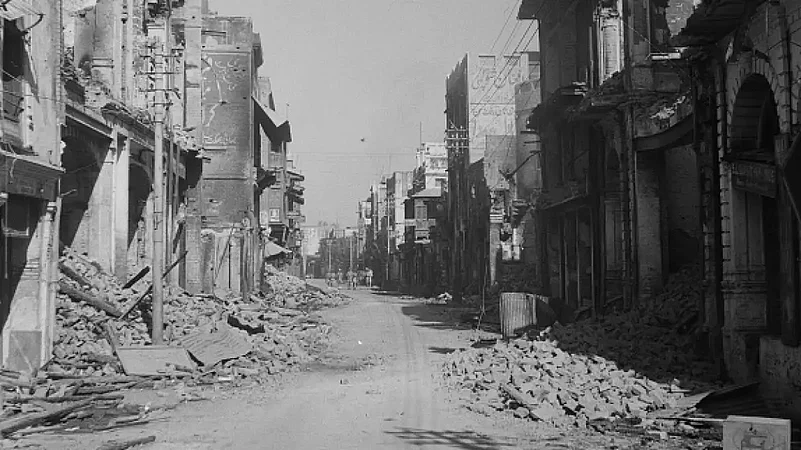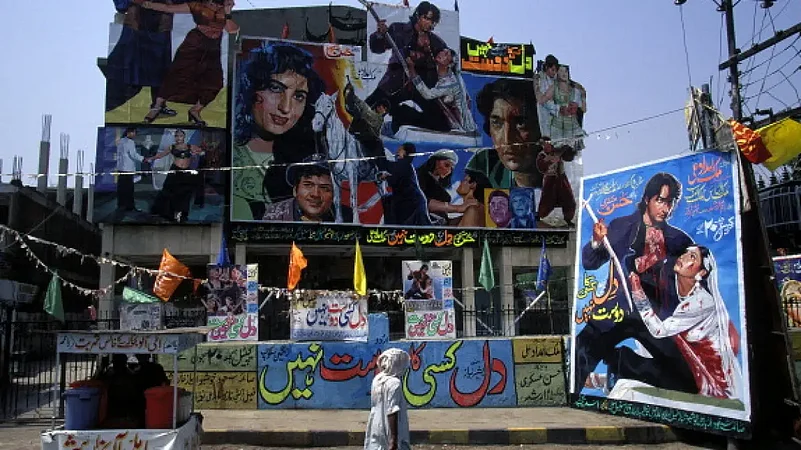To imagine pure Pakistani films is like a man becoming thirst-free just before digging a well. There is no doubt that a year has passed since Pakistan was created. But in this duration, a film institution has not been built upon which we can inscribe a Pakistani stamp.
There was distance among faiths, but the distance was not so great in daily life and films are very much associated with daily life. Therefore, however many films were made, nearly every one of them had a thing of interest for people of every faith and nation.
Such films were also made from a commercial point of view which everyone could see and this point of view would remain established for a very long time. The Partition has taken place. The exchange of population has also happened. But here and there, this point of view of filmmakers has not changed and how can it change when the question is one of earning.
If someone in India made a film which is against Pakistan then it is obvious that it will not run here in Pakistan. In exactly the same manner, if somebody in Pakistan made a film which hurts the feelings of Indians, then it is very much useless to send it to India for showing. In the first place, the censors will not pass such films.
Before Partition, the market for Indian films was India alone; or India and Afghanistan or the small markets of East Africa. As opposed to this, the field of American and English films was very vast and still is, meaning the whole world – this was the reason that Indian films could not thrive well.
Today, the film industry has become even more weak, on both sides, after being divided. Everything has come to Pakistan’s share in a small quantity. The film industry here now is next to nothing and its future is not so bright.
There were very few studios in Lahore, all of three or four. One was razed in the riots. Now only one remains, (of) Mr Pancholi, in which some Muslim filmmakers are working. It has two stages. But the furniture in them is not good. Anyway, whatever there is, the filmmakers here are turning the same upside down, making films while weeping bitterly.

Though it can be said that when conditions will get better — these very filmmakers who are now making improper films stand on their feet, they will strengthen the falling walls of the Pakistani film industry, but when a person hears the speeches of these maulvis who want to enforce their so-called shariah, then the future of art becomes totally dark.
In the past few days, an aged man used to carry around this big scissors with him and said that if I saw any Muslim woman unveiled, then I will cut off her braid. Now, if another two or three such hair-dressing grandees were born, then pray what will be left in films? Actresses will have to work in them wearing a burqa.
Considering this, and picturing the effect of the so-called shariah, the future of music becomes dark, too. God forbid, if the wrong sort of priesthood begins to reign, the art of music into which Muslims breathed life will become totally extinct here and if it becomes extinct, then the question of making films does not arise.
This is the dark side of the picture. A glance at the bright side is not so encouraging either. The life of films is its story. Think what type of stories will be filmed here; the topics are innumerable, but who will write on them? There are multiple obstacles associated with every topic.
If you write something on the veil and present it on the cinema screen, you can think of its reaction. Divorce is such a good topic, but we are unable to make some daring film on it and even if they make some film cautiously, there will be fear of inappropriate message being spread among people.
In India, there are no hurdles in the path of filmmakers as there are in the path of filmmamkers here, which appears at every step. Those in India will make films in the same manner as they have always done because the majority of films are related to Hindu society. Muslim filmmakers, too, generally made films in the same way and it had become their habit, too. But now what type of films will they make in Pakistan? This is a question to which nobody has the answer yet. Someone is making 'Heer Ranjha' while someone else is focusing on 'Jihad' and Teri Yaad (Your Memory), which is very much about Hindu society.
Jihad, as is obvious, is a film which will only run in Pakistan. The distributors over there will not even touch it. Teri Yaad can go there from Wagah and Heer Ranjha, too, since Partition cannot affect these lovers.






















